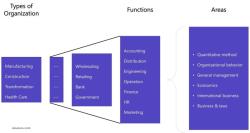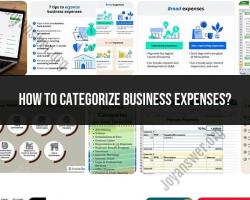What is the business writing course?
A business writing course is designed to equip individuals with the skills and knowledge needed to communicate effectively in a professional and corporate context. These courses focus on various aspects of business communication, including writing clear and concise documents, emails, reports, and other business-related materials. The goal is to enhance written communication skills, ensuring that messages are understood, professional, and aligned with the conventions of business communication.
Here is an overview of what a typical business writing course may cover:
Foundations of Business Writing:
- Introduction to the principles and conventions of effective business writing. This includes understanding the purpose of different types of business documents and the importance of clarity and precision in communication.
Email Etiquette and Communication:
- Guidelines for writing professional and effective emails. This may cover topics such as appropriate tone, formatting, and structuring emails for different purposes, including requests, updates, and formal correspondence.
Business Letters and Memos:
- Instruction on writing formal business letters and memos. This includes addressing various audiences, structuring content, and adhering to proper business letter format and style.
Report Writing:
- Techniques for creating clear and well-organized business reports. This may involve understanding the components of a report, using data and visuals effectively, and presenting recommendations.
Proposal Writing:
- Strategies for crafting persuasive business proposals. This includes identifying the needs of the audience, structuring proposals logically, and using persuasive language to convey ideas.
Meeting Documentation:
- Guidelines for documenting meetings, including preparing agendas, taking minutes, and summarizing key points. Effective meeting documentation is crucial for record-keeping and communication within an organization.
Editing and Proofreading:
- Techniques for editing and proofreading business documents to ensure accuracy, coherence, and professionalism. This may involve addressing common grammatical errors, improving sentence structure, and refining overall writing style.
Audience Analysis:
- Understanding the importance of considering the needs and expectations of the audience when writing business documents. Tailoring communication to different stakeholders and contexts is a key aspect of effective business writing.
Professional Communication in the Digital Age:
- Strategies for navigating digital communication channels, including writing for social media, crafting effective online content, and maintaining professionalism in digital communication.
Business Writing Style and Tone:
- Developing a consistent and professional writing style. This includes choosing appropriate language, maintaining a formal tone, and adapting writing style to different communication contexts.
Cultural Sensitivity in Business Writing:
- Awareness of cultural differences in business communication and strategies for writing with cultural sensitivity in a globalized business environment.
Business writing courses can be offered by universities, colleges, online platforms, and professional development organizations. They may be part of broader business communication programs or standalone courses. The specific content and emphasis may vary depending on the institution and the level of the course (introductory, intermediate, or advanced). Participants typically engage in practical exercises, writing assignments, and receive feedback to reinforce their learning and apply the principles of effective business writing.
What are the core elements covered in a business writing course?
The core elements covered in a business writing course typically include:
1. Fundamentals of Effective Business Writing:
- Clarity and Conciseness: Emphasis on writing clear, concise, and easy-to-understand messages with a focus on the target audience.
- Professional Tone and Style: Avoiding slang, informal expressions, and overly conversational language.
- Organization and Structure: Developing a logical structure and flow of information, using headings, bullet points, and other formatting elements effectively.
- Grammar and Mechanics: Ensuring proper grammar, punctuation, and spelling for professional presentation.
2. Mastering Different Business Communication Formats:
- Email Writing: Crafting clear, concise, and objective emails with appropriate greetings, closings, and subject lines.
- Memos and Reports: Writing informative and persuasive memos and reports with clear and concise content, proper formatting, and persuasive arguments.
- Letters and Proposals: Drafting formal and professional letters and proposals with persuasive calls to action and impactful language.
- Presentations: Designing and delivering effective presentations, using visuals, clear communication, and engaging language.
3. Audience Analysis and Tailoring Communication:
- Understanding your target audience: Identifying the reader's needs, expectations, and level of understanding.
- Adapting communication style: Tailoring language, tone, and content to the specific audience and situation.
- Using appropriate vocabulary: Employing business-specific terminology and avoiding jargon that is unfamiliar to the audience.
4. Persuasive Writing and Business Etiquette:
- Crafting persuasive arguments: Presenting ideas logically and concisely, using data and evidence to support your claims.
- Effective negotiation and communication: Learning how to negotiate effectively and communicate clearly in business settings.
- Cultural awareness and professionalism: Understanding cultural differences in communication styles and practicing ethical and professional behavior.
5. Writing for Different Media and Platforms:
- Adapting writing for online communication: Writing effectively for emails, social media, and other digital platforms.
- Creating content for marketing and sales: Developing persuasive and engaging content for marketing materials, sales presentations, and other promotional purposes.
- Writing for public relations: Crafting press releases, media pitches, and other public relations materials that effectively communicate your message.
Additional Elements:
- Business vocabulary and terminology: Building a strong understanding of relevant business terms and industry jargon.
- Active voice and strong verbs: Using active voice and strong verbs to convey your message clearly and concisely.
- Editing and proofreading: Developing effective editing and proofreading skills to produce error-free and professional documents.
- Collaboration and teamwork: Learning how to work effectively in teams and communicate clearly with colleagues in a business environment.
The specific emphasis and depth of each element covered in a business writing course may vary depending on the course level, target audience, and instructor's approach. However, these core elements provide a foundation for developing effective communication skills and mastering the art of business writing.













